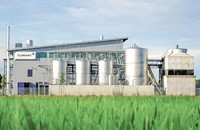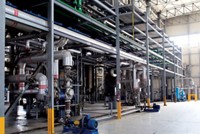Advertisement
Grab your lab coat. Let's get started
Welcome!
Welcome!
Create an account below to get 6 C&EN articles per month, receive newsletters and more - all free.
It seems this is your first time logging in online. Please enter the following information to continue.
As an ACS member you automatically get access to this site. All we need is few more details to create your reading experience.
Not you? Sign in with a different account.
Not you? Sign in with a different account.
ERROR 1
ERROR 1
ERROR 2
ERROR 2
ERROR 2
ERROR 2
ERROR 2
Password and Confirm password must match.
If you have an ACS member number, please enter it here so we can link this account to your membership. (optional)
ERROR 2
ACS values your privacy. By submitting your information, you are gaining access to C&EN and subscribing to our weekly newsletter. We use the information you provide to make your reading experience better, and we will never sell your data to third party members.
Environment
Europe looks to develop second-generation biofuels
by Patricia Short
May 12, 2008
| A version of this story appeared in
Volume 86, Issue 19
Two German companies—Süd-Chemie and Linde—are teaming up to develop second-generation biofuels based on crops that do not compete with food production.
The partners will focus on developing a biotechnological process to generate fuels such as ethanol from plant matter containing cellulose, such as wheat and corn straw, grasses, and wood.
Süd-Chemie will contribute its know-how in biocatalysis and bioprocess engineering to the joint venture. Linde's subsidiary, Linde-KCA-Dresden, will provide engineering expertise in the areas of biotechnology and chemistry.
The partners stress that their technology, which will be commercially available, will not compete with food and feed crops, as first-generation biofuels do. First-generation biofuels are produced solely from plant matter containing oil, starch, or sugar. Biodiesel, for example, is derived from rapeseed oil, and bioethanol is derived from starch or sugar. Second-generation biofuels, however, use only cellulose-based matter.
Potential competition for land and crops, and escalating food and feed prices, has become a major concern for European consumers and legislators.
But as Mariann Fischer Boel, European commissioner for agriculture and rural development, said in a speech in Brussels on May 6, first-generation biofuels can give the European Union economic and environmental benefits while serving as a bridge "to take us to the next generation."
"I underline the importance of that bridge," she said. "A stable market can cut down the considerable risks faced by potential investors in second-generation fuels. Also, production facilities for some advanced fuels could be built as extensions to first-generation plants."




Join the conversation
Contact the reporter
Submit a Letter to the Editor for publication
Engage with us on Twitter